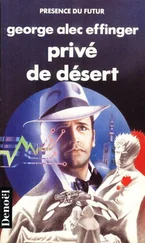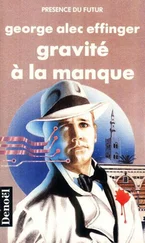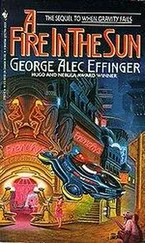The years passed ever more quickly. Jehan became a woman of the streets. For a time, because of her youth and beauty, she earned a good living. Then as the decades left their unalterable blemishes upon her, she found it difficult even to earn enough for a meal and a room to sleep in. She grew older, more bitter, and filled with self-loathing. Did she hate her father and the rest of her family? No, her fate had been fixed by the will of Allah, however impossible it was for her to comprehend it, or else by her own timidity in the single moment of choice and destiny in the alley so many years before. She could not say. Whatever the answer, she could not benefit now from either insight or wisdom. Her life was as it was, according to the inscrutable designs of Allah the Merciful. Her understanding was not required.
Eventually she was found dead, haggard and starved, and her corpse was contorted and huddled for warmth coincidentally in the same alley where the young man had so carelessly despoiled any chance Jehan had for happiness in this world. After she died, there was no one to mourn her. Perhaps Allah the Beneficent took pity on her, showing mercy to her who had received little enough mercy from her neighbors while she lived among them. It had always been a cold place for Jehan.
For a while estranged from Heisenberg, Jehan worked with Erwin Sehrodinger in Zurich. At first Schrödinger’s ideas confused her because they went against many of Heisenberg’s basic assumptions. For the time being, Heisenberg rejected any simple picture of what the atom was like, any model at all. Sehrodinger, older and more conservative than the Gottingen group, wanted to explain quantum phenomena without new mathematics and elusive imagery. He treated the electron as a wave function, but a different sort of wave than de Broglie’s. The properties of waves in the physical world were well known and without ambiguity. Yet when Sehrodinger calculated how a change in energy level affected his electron wave, his solutions didn’t agree with observed data.
“What am I overlooking?” he asked.
Jehan shook her head. “Where I was born they say, ‘Don’t pour away the water in your canteen because of a mirage.’ “
Schrödinger rubbed his weary eyes. He glanced down at the sheaf of papers he held. “How can I tell if this water is worth keeping or something that belongs in a sewer?”
Jehan had no reply to that, and Schrödinger set his work aside, unsatisfied. A few months later several papers showed that after taking into account the relativistic effects, Schrödinger’s calculations agreed remarkably well with experimental results after all.
Schrödinger was pleased. “I hoped all along to find a way to drag Born and Heisenberg back to classical physics,” he said. “I knew in my heart that quantum physics would prove to be a sane world, not a realm populated by phantoms and governed by ghost forces.”
“It seems unreal to me now,” said Jehan. “If you say the electron is a wave, you are saying it is a phantom. In the ocean, it is the water that is the wave. As for sound, it is the air that carries the wave. What exists to be a wave in your equations?”
“It is a wave of probability, Born says. I do not wholly understand that yet myself,” he said, “but my equations explain too many things to be illusions.”
“Sir,” said Jehan, frowning, “it may be that in this case the mirage is in your canteen and not before you in the desert.”
Schrödinger laughed. “That might be true. I may yet have to abandon my mental pictures, but I will not abandon my mathematics.”
It was a breathless afternoon in the city. The local Arabs didn’t seem to be bothered by the heat, but the small party of Europeans was beginning to suffer. Their cruise ship had put ashore at the small port, and a tour had been arranged to the city some fifty miles to the south. Two hours later the travelers concluded that the expedition had been a mistake.
Among them was David Hilbert, the German mathematician, a lecturer at Gottingen since 1895. He was accompanied by his wife, Käthe, and their maid, Clarchen. At first they were quite taken by the strangeness of the city, by the foreign sights and sounds and smells; but after a short time, their senses were glutted with newness, and what had at first been exotic was now only deplorable.
As they moved slowly through the bazaars, shaded ineffectually by awnings or meager arcades of sticks, they longed for the whisper of a single cool breeze. Arab men dressed in long white gallebeyas cried out shrilly, all the while glaring at the Europeans. It was impossible to tell what the Arabs were saying. Some dragged little carts loaded with filthy cups and pots — Water? Tea? Lemonade? It made no difference. Cholera lingered at every stall; every beggar offered typhus as he clutched at sleeves.
Hilbert’s wife fanned herself weakly. She was almost overcome and near collapse. Hilbert looked about desperately. “David,” murmured the maid, Clarchen, the only one of Hilbert’s amours Frau Hilbert could tolerate, “we have come far enough.”
“I know,” he said, “but I see nothing — nowhere — “
“There are some ladies and gentlemen in that place. I think it’s an eating place. Leave Käthe with me there, and find a taxi. Then we shall go back to the boat.”
Hilbert hesitated. He couldn’t bear to leave the two unprotected women in the midst of this frantic heathen marketplace. Then he saw how pale his wife had become, how her eyelids drooped, how she swayed against Clarchen’s shoulder. He nodded. “Let me help,” he said. Together they got Frau Hilbert to the restaurant, where it was no cooler but at least the ceiling fans created a fiction of fresh air. Hilbert introduced himself to a well-dressed man who was seated at a table with his family, a wife and four children. The mathematician tried three languages before he was understood. He explained the situation, and the gentleman and his wife both assured Hilbert that he need not worry. Hilbert ran out to find a taxi.
He was soon lost. There were no streets here, not in the European sense of the word. Narrow spaces between buildings became alleys, opened into small squares, closed again; other narrow passages led off in twisting, bewildering directions. Hilbert found himself back at a souk; he thought at first it was where he’d begun and looked for the restaurant, but he was wrong. This was another souk entirely; there were probably hundreds in the city. He was beginning to panic. Even if he managed to find a taxi, how could he direct it back to where his wife and Clarchen waited?
A man’s hand plucked at him. Hilbert tried to shrug the long fingers away. He looked into the face of a lean, hollow-cheeked man in a striped robe and a blue knitted cap. The Arab kept repeating a few words, but Hilbert could make no sense of them. The Arab took him by the arm and half-led, half-shoved Hilbert through the crowd. Hilbert let himself be guided. They crossed through two bazaars, one of tinsmiths and one of poultry dressers. They entered a stone-paved street and emerged into an immense square. On the far side of the square was a huge, many-towered mosque, built of pink stone. Hilbert’s first impression was awe; it was as lovely an edifice as the Taj. Then his guide was pushing him again through the throng, or hurrying in front to hew a path for Hilbert. The square was jammed and choked with people. Soon Hilbert could see why: a platform had been erected in the center, and on it stood a man with what could only be an executioner’s axe. Hilbert felt his stomach sicken. His Arab guide had thrust aside everyone in their way until Hilbert stood at the very foot of the platform. He saw uniformed police and a bearded old man leading out a young girl. The crowd parted to allow them by. The girl was stunningly lovely. Hilbert looked into her huge, dark eyes — “like the eyes of a gazelle,” he remembered from reading Omar Khayyam — and glimpsed her slender form undisguised by her modest garments. As she mounted the steps, she looked down directly at him again. Hilbert felt his heart lurch; he felt a tremendous shudder. Then she looked away.
Читать дальше












